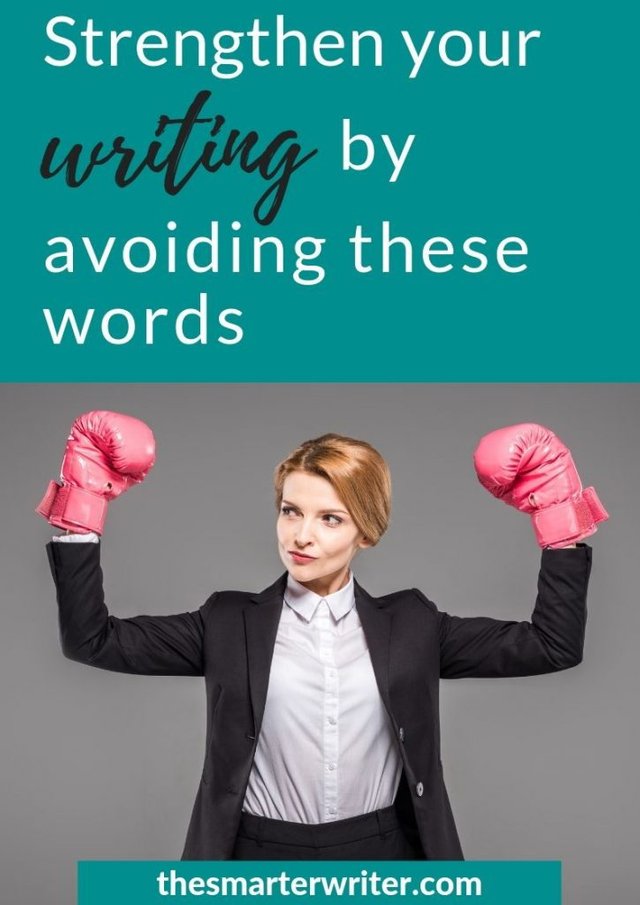Avoid these words to strengthen what you have to say

There are a few insidious words and phrases that creep into my everyday language and minimise and weaken what I have to say.
These words make me sound wishy-washy, apologetic or worse, timid and unsure of myself.
What 'minimising language' means
Minimising language uses weak or uncertain language to downplay and undermine our message.
It's one of the ways we sabotage ourselves, usually unintentionally.
Weak or uncertain language examples
I'm just checking in ...
I only want to...
I think we should...
I believe it's a good idea...
Perhaps we could...
I feel like we need to ...
Can I suggest...
Do you use these expressions, too?
These phrases minimise what we have to say and weaken the power of our words.
Weak words to avoid in writing
Two words, in particular, worm their way into my writing (and probably speech) every day, even though I am super-conscious of them:
- just
- only
I use them in emails and other messaging apps, blogs and social media posts to soften my language. I'm trying to play nice. But nice undermines my authority and appearance of confidence.
It's not the words themselves but how we use them that's the problem.
There are so many different meanings behind the word 'just'. I'm talking about when 'just' is used in place of 'merely', not when it relates to time. For example:
✅ I just made green cupcakes.
When you use 'just' in relation to time, this is completely fine.
❌ I just made green cupcakes.
When you use 'just' instead of 'merely' to downplay the importance of your actions.
These are exactly the same sentences but their intent is different.
Let's have a look at just's best friend 'only'. This is another word with multiple meanings and uses. Consider the intent behind the word and when it's used instead of 'merely'.
✅ I only made green cupcakes.
When you use 'only' in relation to singularity, this is completely fine. This means you didn't make blue cupcakes or brownies or pancakes.
❌ I only made green cupcakes.
When you use 'only' instead of 'merely' to downplay the importance of your actions. It also sounds apologetic. I'm sorry I didn't make you a blue cupcake. 😔
Why I use minimising language
Even though I'm aware of their power to weaken what I have to say, these words keep showing up. I pepper emails with I thinks and Perhaps we coulds. Other comms channels are littered with I feels and What if wes.
Even though I am a generally confident person, I use language that makes me sound uncertain.
So, why do I do it?
It's important to understand the role society plays in the way we use language.
As a woman, I've been taught in a range of subtle (and some not so subtle) ways to not come across as arrogant or aggressive, especially to men. Not if I want to be heard.
If I don't use softening expressions to buffer my words, I risk being perceived as rude and dictatorial. And I've been conditioned to play nice if I want to be heard.
It's hard to change something that has been ingrained over a lifetime. But by understanding where this minimising language is coming from and how it is unconsciously ingrained in my behaviour, it's helping me to make a shift to more direct communication.
I'm eliminating one 'just' at a time.

Pin it to read later
Are you going to join me on my quest to eliminate minimising language from everyday communications?
Posted from my blog.